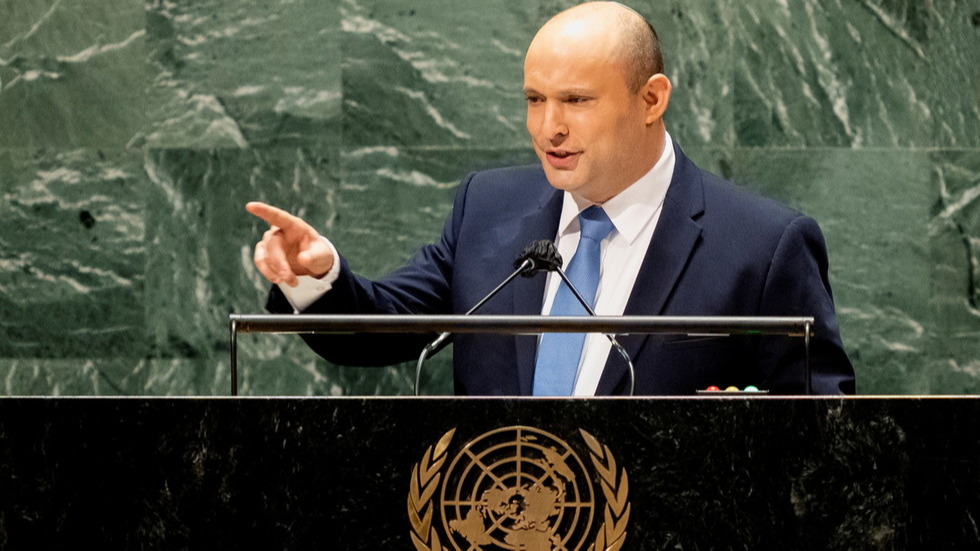
Israel’s prime minister Naftali Bennett addresses the 76th Session of the United Nations General Assembly, at the UN headquarters in New York, US September 27, 2021 © John Minchillo/Pool via REUTERS
United Nations, September 28 (RHC)-- In an obvious threat to militarily attack Iran, the Prime Minister of Israel Naftali Bennett issued a call at the United Nations to recognize "the gravity of the situation" with Tehran's alleged nuclear weapons program.
Speaking to the UN General Assembly on Monday, Bennett said that Iran had made “a major leap forward” in recent years and that its “weapon program is at a critical point.”
Bennett claimed that Iran is now enriching uranium to 60%, many times greater than permitted under the 2015 Joint Comprehensive Plan of Action (JCPOA), which put restraints on Tehran’s nuclear development. It’s “one step short of weapons-grade material – and they’re getting away with it,” he added.
The Israeli leader contended that Iran’s nuclear program had now hit a “watershed moment” and words would not be enough to stop its centrifuges. But Bennett said that while the rest of the world either considered Iran’s pursuit of nuclear weapons inevitable, or they’re just tired of hearing about it, Israel didn’t have that privilege and its tolerance was running out.
“Iran is much weaker, much more vulnerable than it seems,” he noted, adding that Israel would not tire on the matter and would not allow Tehran to acquire nuclear weapons.
Iranian government negotiators have been discussing a return to the JCPOA with China, France, Germany, Russia, the UK and the US – the original signatories of the deal that was unilaterally abandoned by former US president Donald Trump in 2018. Trump subsequently enacted tough sanctions on Iran, while Tehran proceeded to renege on its own commitments under the deal.
Talks in Vienna stalled as parties waited for the results of Iran’s presidential election in June and to observe the next moves of its new and more hardline president, Ebrahim Raisi.
Iran has blamed Israel for at least two recent attacks on its nuclear program. In 2020, senior nuclear scientist Mohsen Fakhrizadeh was gunned down in his car while driving outside Tehran, while in April 2021, the Natanz nuclear enrichment facility suffered a cyber attack that Iran said was the result of Israeli sabotage.

